Flying in Alaska — The Last Frontier

When I was a soldier, I very badly wanted to go to Europe. As a normal guy, I knew I would never have the means to really walk the old battlefields unless I lived there on the Army’s nickel. I figured three years flying in Germany should do it. Naturally, Uncle Sam had other plans.
I’m skinny, and I grew up in the Deep South. I was accustomed to air so thick, hot, and wet you could tear off a chunk and gnaw on it. So, of course, I got orders for Alaska.
That’s the thing about military service. The Big Green Machine doesn’t much care what you want. Everything is always the mission. With that in mind, I loaded up my wife, my young son, and all our worldly possessions and headed north.
We could tell we had arrived when all the cars we encountered had electrical cords hanging out the front. For those who have not had the pleasure, these connect to engine block heaters, so your car doesn’t freeze into an inert block of ice at 45 degrees below zero. It took us nearly a month of driving just to get there. The place was at once both intimidating and unimaginably beautiful.
For starters, Alaska is really, really big. My favorite bumper sticker read, “If You Split Alaska in Half, Texas Would be the Third-Largest State.” Alaska has three million lakes, most of which don’t have names. It is also home to some 50,000 Alaskan brown bears.
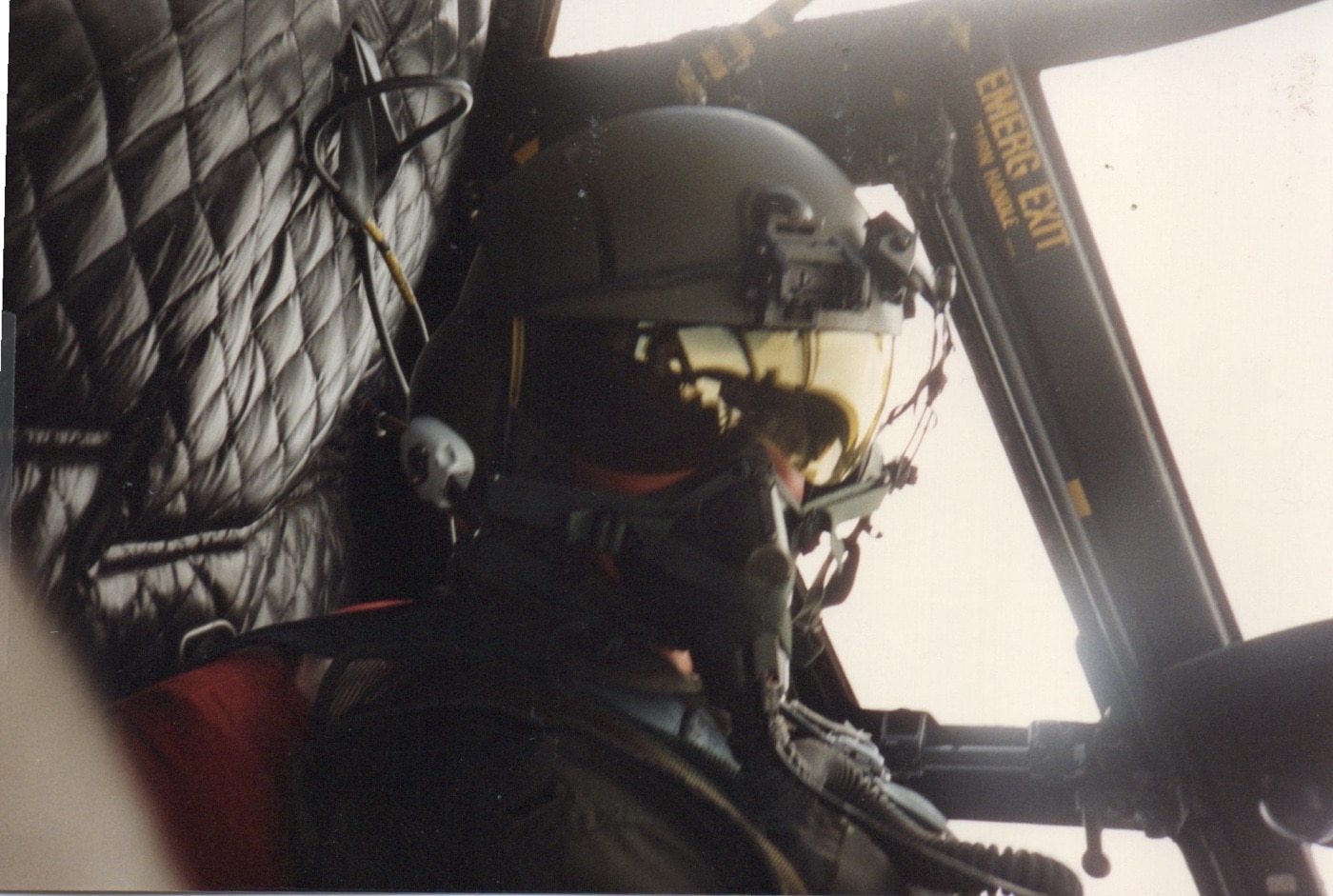
The first year we got 144” of snow. The coldest it got was 62 degrees below zero. Back in the World when it gets just stupid cold you might opt for PT inside a heated aircraft hangar. Not so in Alaska. We did Brigade runs at 40 below just because we could. For this skinny warm-blooded Southern redneck, Alaska was a brave new world indeed. And then there was the flying.
Alaska — God’s Playground
Alaska was dichotomous for us. For two of my three years in Alaska, I was the operations officer for a CH-47D helicopter unit. That meant I got to fly pretty much anywhere and do most anything across the whole state, all the while claiming it was actually work. That third year I was the Aviation Liaison Officer to an infantry brigade where I got to live like an animal. The grunt life was not nearly as sexy cool as aviating, but I made some simply incredible friends.
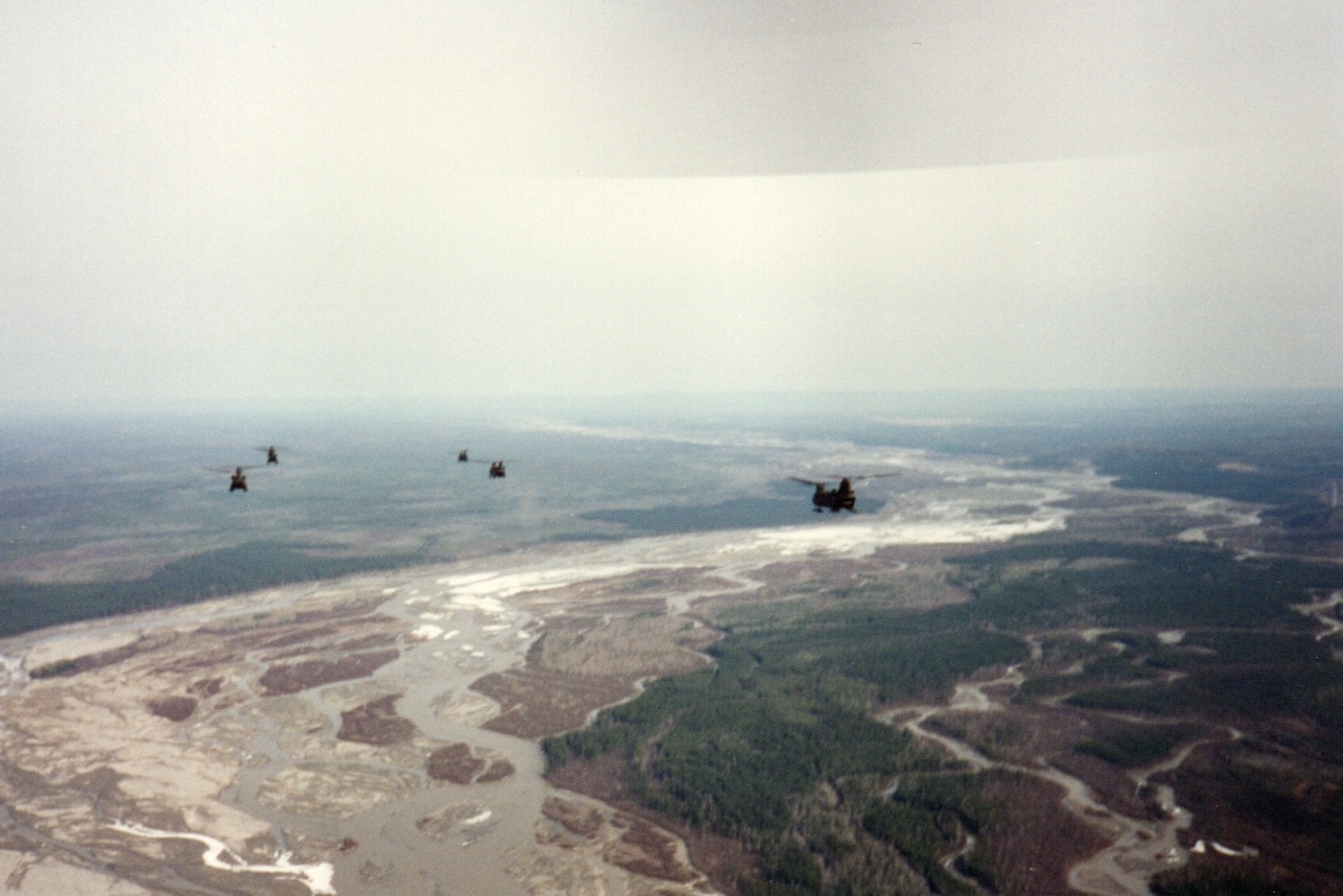
The natural beauty of the place really does defy my capacity to describe. There were times I could take a Chinook helicopter up to a high hover at 5,000 feet or so and do a pedal turn and not see a manmade structure to the horizon all the way around. There aren’t a lot of places left on Planet Earth where you can do that.
I commanded the Army’s High Altitude Rescue team through two seasons and summited Mount McKinley, at 20,310 feet the highest point in North America, six times. However, that was always at the controls of a helicopter, which is the only way sensible folk climb mountains. Flying a helicopter at 22,000 feet was the most technically challenging flying I have ever undertaken and a simply priceless experience.
Duty Calls
The definition of the Arctic Circle is the latitude beyond which the sun does not peek above or drop below the horizon. I have actually flown night vision goggles (NVGs) at noon well above the circle. You also have not lived until you have kicked back and soaked up the northern lights under NVGs. It was so majestic it needed a soundtrack. Man’s art pales in comparison to God’s.
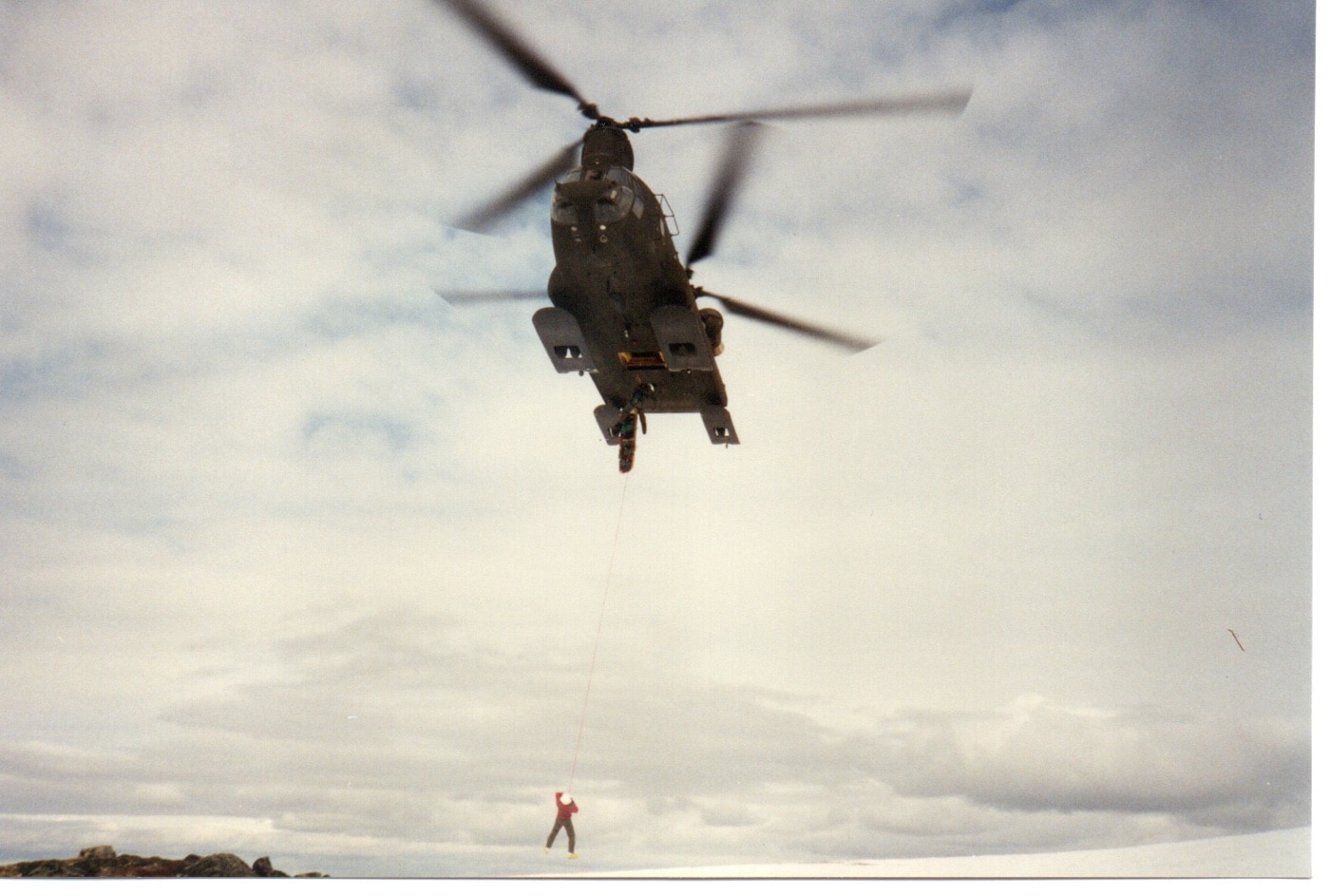
The Boeing CH-47D Chinook is a serious helicopter that does serious things. Unlike many lesser military machines, every time we broke ground it was to do something real. I recovered suborbital payloads for NASA, slung cannons into remote areas for artillery raids, resupplied remote Air Force radar stations, and saved a man’s life on the side of Mount McKinley.
We recovered two downed fighter jets. One was a British SEPECAT Jaguar and the other a U.S. Air Force F-15C Eagle. Both planes were fairly pulverized, but I did get some sweet swag from the Jaguar. I also had the privilege of working with some great Brits from the Royal Air Force.
The aviation assets in Alaska are there to support a robust light infantry brigade. That meant resupply missions, paradrops, and air assaults aplenty. Successfully serving as air mission commander for a 15-ship CH-47D air assault under NVGs in the blowing snow of an arctic winter was likely the most professionally daunting thing I have ever done. It made lesser challenges like medical school that came later seem easy by comparison.
Your Tax Dollars at Work
It wasn’t all work, not by a long shot. Picking up shed antlers for the enlisted guys back at the hangar was a perennial crowd-pleaser. Tearing down a remote Alaskan river like a crack-addled teenager at 170 knots and five feet off the water was pretty cool as well. Many of the crew dogs had boom boxes wired into the intercoms of their aircraft so we could jam to Kenny Loggins, Def Leppard, or AC/DC for added flavor.
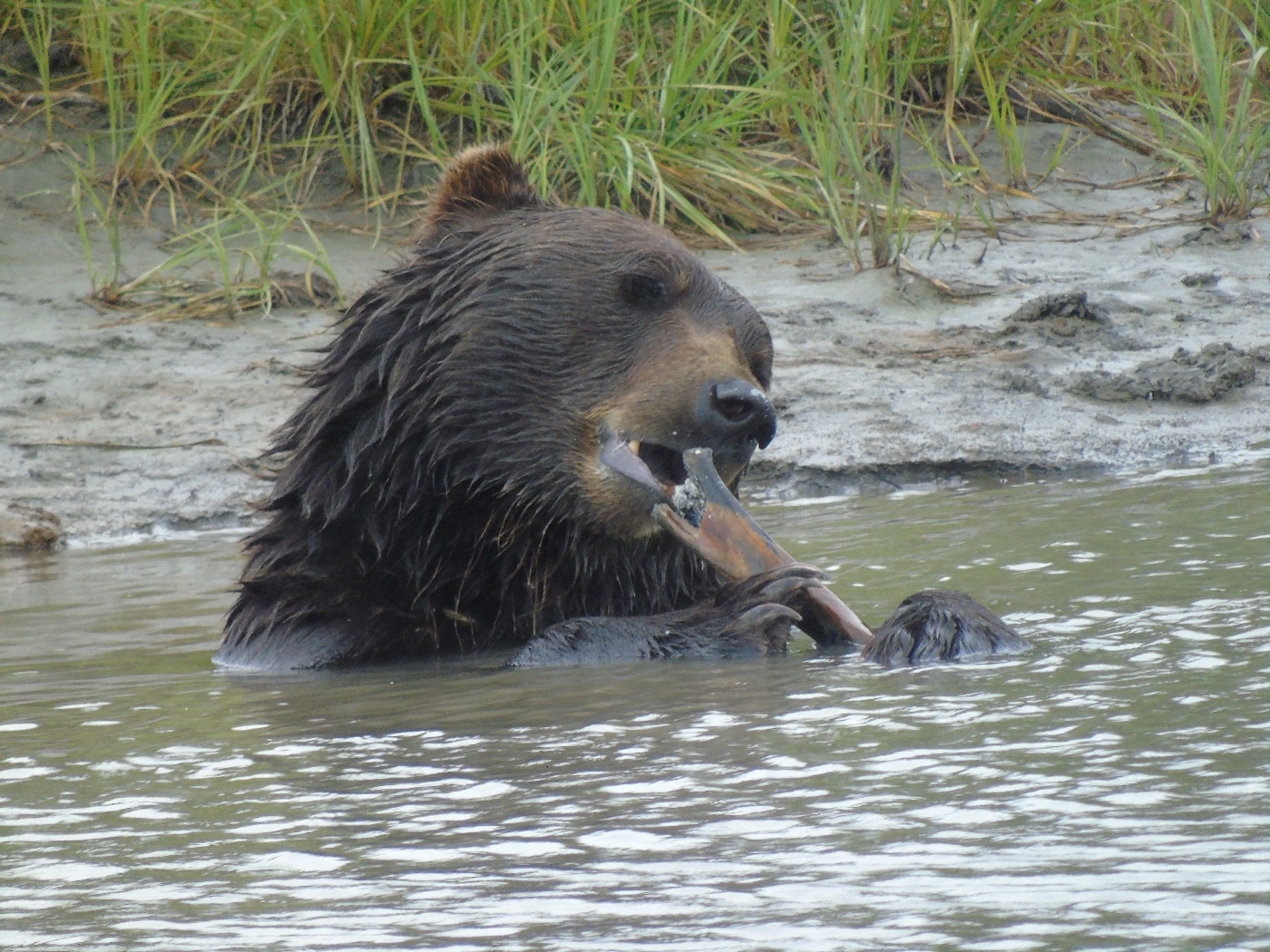
One survival exercise had us spending a week floating down a remote river in pairs in inflatable survival rafts while living off the land. The rules were you had to be in uniform when dropped off and in uniform when picked up. Anything else was fair game. Thanks to a legitimately limitless supply of arctic grayling, ptarmigan, and wild berries, I was heavier at the end of that week than I was at the beginning.
I carried a homebuilt, registered slide-action short-barreled shotgun for bear defense when I was out in the wilderness. I briefly considered stoking it with those fire-breathing dragon’s breath rounds just for the shock value. However, an old Alaskan in my church talked me out of that. He wisely opined that the only thing worse than being chased by an angry grizzly bear would be being chased by an angry grizzly bear on fire. And speaking of wildlife…

Under NVGs, I saw packs of wolves running in formation that looked like a literally unstoppable force. One time I was blasting from north to south just east of the Salcha River at three feet off the trees when we encountered a broad open alpine meadow. I dropped the airplane down onto the deck and noticed a massive cinnamon grizzly bear appear unexpectedly right off our nose. I popped the cyclic back and cleared the monster by maybe a foot or two.
We really did strive not to molest the wildlife. The moose are thick as rats out in the muskeg and flee in terror whenever we got close. By contrast, my flight engineer informed me that, as we zipped over this big guy’s head, he stood up on his hind legs and swatted at us. Human beings are not at the top of the food chain out in that place.
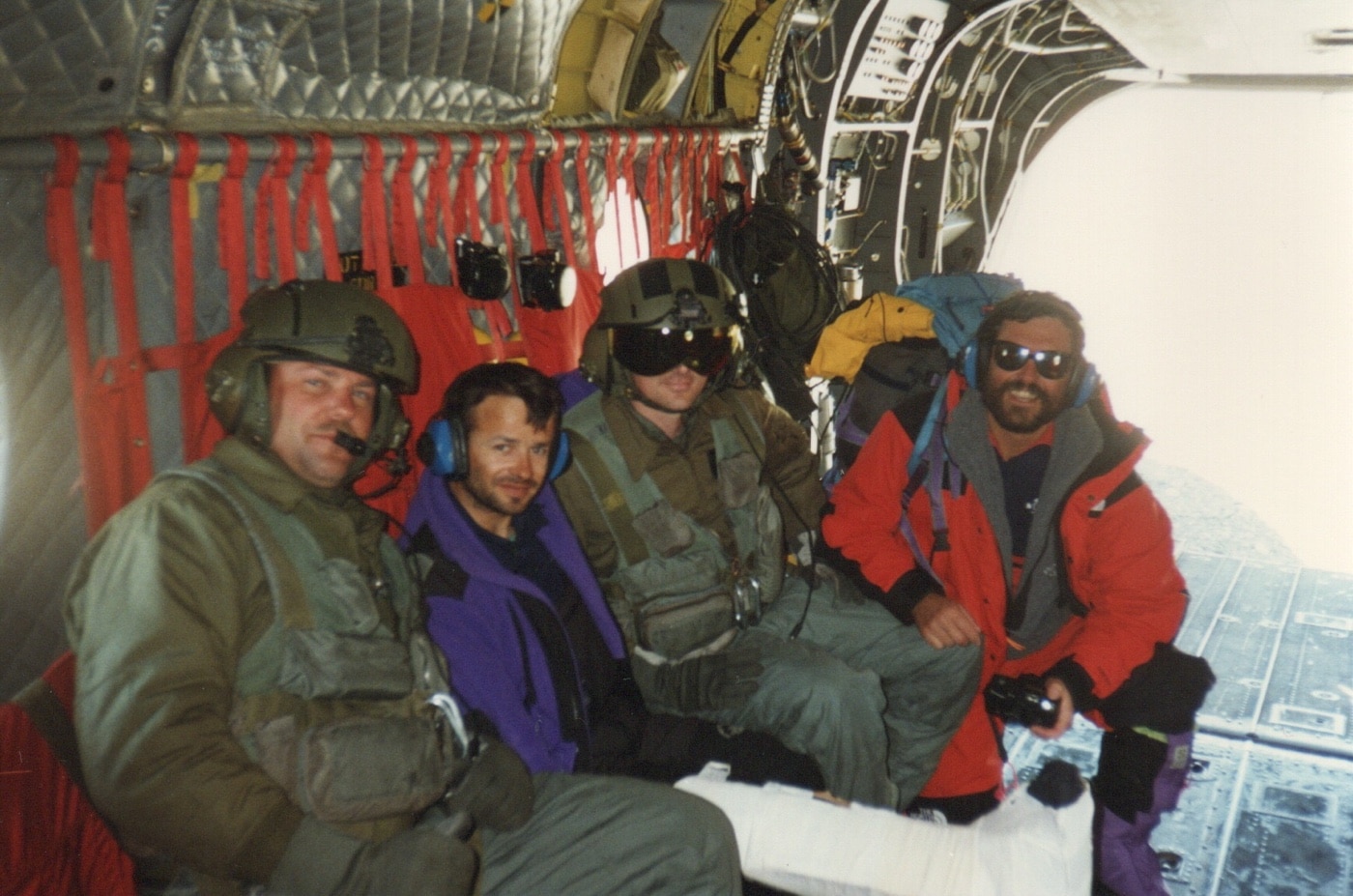
As a compulsive student of history, the detritus of World War II was mesmerizing. There were crashed vintage aircraft all over the place if you knew where to look. I found North American B-25 Mitchell, a pair of Consolidated B-24 Liberator bombers, and the remains of a Boeing B-29 Superfortress. Alaska is an unforgiving place for aviators, particularly back in the 1940s.
Hangar 1 at Ladd Army Airfield where we were based passed through every Lend-Lease combat aircraft we gave the Russians during WWII. The American planes came in one side, got their white stars painted red, and went out the other side to go fight the Luftwaffe. I found WWII-vintage graffiti while exploring some of the more obscure parts of the old building.
Ruminations
Doing all that cool-guy stuff meant a lot of deployments. I averaged eight months out of twelve away from home and wandered as far afield as Australia. However, I left the Army with enough stories to keep my grandchildren entertained until the sun burns out.
I was glad to move back someplace where I didn’t have to plug my car in during the winter. Additionally, if I ever see another snowflake it will be too soon. However, I will also be forever grateful that Uncle Sam saw fit to post me to the world’s last untamed wilderness. Though it has been 27 years since I called Alaska home, I still carry a little bit of that remarkable place around with me every day.
Editor’s Note: Please be sure to check out The Armory Life Forum, where you can comment about our daily articles, as well as just talk guns and gear. Click the “Go To Forum Thread” link below to jump in and discuss this article and much more!
Join the Discussion
Read the full article here







